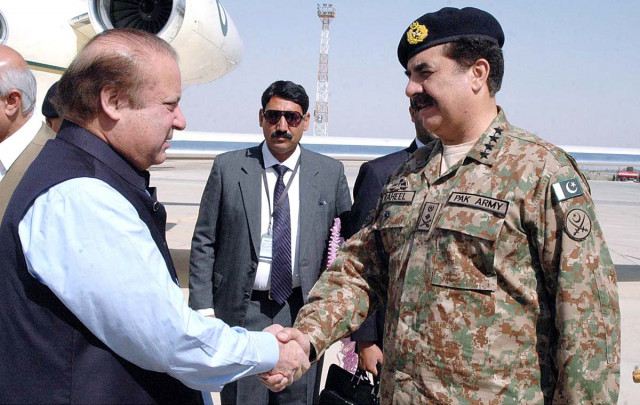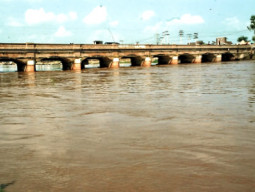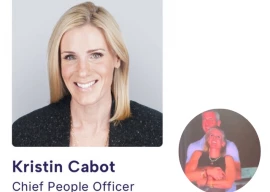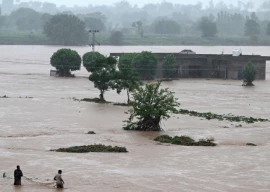
There is one young cadet in the Pakistan Military Academy (PMA) Kakul today who secretly hopes he will be the Chief of Army Staff in the year 2050. Will he matter to us then as does his present chief today?
This young man has no idea about the true angst of being a Pakistani.
Futurologists have zeroed in on the year 2050 for predicting what the world will be like in all fields. It’s a nice round catchy figure this 2050 and there are serious, semi-serious and outlandish studies about life then.
High Noon at half past Noon
Here’s what Newsweek writes about 2050: “According to Ulrich Eberl, author of a 2011 book titled Life in 2050: How We Create the Future Today, we are only halfway through an era of rapid advancements in computing. Over the last 25 years or so, information technology has become 1,000 times better, Eberl says. In next 25 years, he predicts that scale of improvement will happen again. ‘We will see another 1,000-fold increase in computer power, data transmission rate, at the same price we see today,’ Eberl told Newsweek. ‘If you spend, say, $500 dollars on a laptop today, you would get the same power and performance and computing quality in a small chip for 50 cents,’ he says. ‘This means we will have computing power everywhere, because it is so cheap. We will have it in small chips in our jackets. We will see robots, we will see automotives driving themselves on the streets. It will be accessible for people because it will be so cheap.’
“In fact, by 2045, computers might be so good that we may be able to upload digital versions of our brains and live forever some speculate, though that brings up all manner of philosophical questions about what ‘living’ really means.”
Newsweek is one of numerous publications that are addressing the excitement and anxiety of the future. Technology will drive and shape the future in almost every way. The pace of change will increase exponentially and make it harder and harder for unprepared people and nations to keep abreast of these dizzying developments. The gap between the ‘producers’ of technology and the ‘consumers’ of technology will grow wider till at some point, it may become unbridgeable. The option for laggards to catch up may slam shut forever.
The complexities of civil-military relations

Experts cite the example of three categories of people to define our relationship with technology. First, the person who for instance is working to develop Twitter for the future with new exciting features; second, the one who is an avid user of Twitter and leverages its abilities to express himself/herself; third, the person who does not have a Twitter account. Taken together, these three people define the amazing promise and potential of a technological future while highlighting the near-absolute irrelevance of those who do not have the ability to handle basic technology, or do not have access to it.
On this spectrum, where do we see ourselves in 2050: Technology Producer, Technology Consumer or Technology Non-User?
The answer will depend on what we are doing today to prepare ourselves (or not) for 2050. Today we find ourselves locked in debates about civil-military relations and unfair election practices; about the continuously crumbling criminal justice system and the elusive fundamental reform of public institutions. Today we are still debating about fixing the broken public education system and a terminal health care set-up that boasts one of the highest child mortality rates in the world.
For Pakistan today, it seems 2050 will never come.
China-Pakistan Economic Corridor: Lines of development – not lines of divide
Hear the public discourse and read society’s narrative, and you feel the constantly reverberating echoes of joy. We are moving ahead, they say. Regular (semi-fair) elections, a democratic architecture, smooth transfer of power from one elected government to the next, an army confined to the barracks (kind of), a judiciary that is not beholden to the rulers of the day, a media that may be unprofessional and immature but independent (sort of), provincial and federal governments striving for service delivery, massive investment in bricks and mortar, the famed China-Pakistan Economic Corridor unfolding like a giant asphalt carpet, and a war against terrorists paying rich dividends. What more could one want?
Well plenty, actually.
This manufactured elation is a by-product of a leadership that prides itself in its insularity. It is a by-product of a political system that has straightjacketed itself into an exclusionary mode slicing a majority of Pakistanis out of it. It is a by-product of an upwardly mobile middle class whose increasing purchasing power is matched with decreasing ability for critical thinking. In fact, this elation that we are wrapping around ourselves like Linus’s blanket is an iron curtain that is blocking off our view to the world of tomorrow. In this world, eight-lane motorways and shiny public transport will matter to an extent that they will swiftly and efficiently move the ill-educated, ill-trained, unskilled, technologically-challenged, globally dependent Pakistani population from one point to the other.
Govt needs to match army’s efforts in ongoing fight against terror: COAS
We can take our civil-military relations and our electoral debates and bake them into a pie, but in the years ahead they will mean nothing in the larger scheme of things. Our leadership resides in a well alongside the fabled frog. The so-called ‘steel frame’ of bureaucracy, with its antiquated notions of perks, privileges and prerogatives is a dinosaur waiting for extinction. The PML-N cannot think beyond project-based governance and winning the next election by eliminating power outages, and the PTI is running in circles trying to figure out what it really wants. The rest do not matter. What does matter, is the military.
But does it really? If you think the armed forces can chart our path to 2050, you need to wake up. Today there is angst in being a Pakistani because the future that looks bright now is a future that has lapsed. We may climb the ladder as fast as we can, it won’t help if the ladder is leaning against the wrong tree. In 2050, many of us will be dead. Many more of us will, however, need to endure the rigours of the land of tomorrow; rigours perpetuated by the visionless leadership of today that is content to let this nation be a have-not in the land of tomorrow. Sharif and Sharif may be defining our next three years, but who is thinking of the next 35?
That young cadet dreaming of becoming the chief in 2050, he doesn’t know what’s coming his way.
Published in The Express Tribune, November 29th, 2015.
Like Opinion & Editorial on Facebook, follow @ETOpEd on Twitter to receive all updates on all our daily pieces.














COMMENTS
Comments are moderated and generally will be posted if they are on-topic and not abusive.
For more information, please see our Comments FAQ